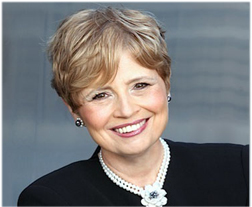By Robert D. Thomas
Music Critic
Southern California News Group
I was thinking last night as I was reading a media release from the Los Angeles Philharmonic how fortunate we are to be living in Los Angeles. Part of that stems from the release’s content: the beginning of the LAPO’s classical season at Hollywood Bowl, which takes place on July 9 — the season runs through mid-September.
However, embedded in the release was the statement that this is Gustavo Dudamel’s eight season at the Bowl, and eight is the operative number. Across the country Alan Gilbert has just finished his tenure as music director of the New York Philharmonic after eight seasons and Washington Opera has announced that it will not renew the contract of its music director, Phillipe Auguin, after eight seasons.
Gilbert’s departure story is well known in classical music circles, but there was a telling quote among the stories that were published as he was leaving. He said to New York Times writer Michael Cooper, ““To a degree I lost my stomach to fight for things.” You can read the entire article HERE.
That should be a sobering quote for incoming NYPO president and chief executive officer Deborah Borda. One of the reasons Borda was so successful in Los Angeles is that she and her music directors, first Esa-Pekka Salonen and then Gustavo Dudamel, worked as a team in their programming initiatives. Whatever your feelings about Gilbert as a conductor, he apparently didn’t enjoy that support from upper management. Incoming NYPO Music Director Jaap van Zweden will need the support of Borda and the NYPO board if he is to not relive Gilbert’s epitaph.
Incidentally, for Gilbert, the well-known phrase, “When one door closes, another opens,” has come true. He has been named he next chief conductor of the NDR Elbphilharmonie Orchestra in Germany. Unlike the NYPO, which faces the daunting task of raising millions of dollars for a multi-year renovation project of its home, David Geffen Hall, the NDRE’s home is a new $843 million concert hall that overlooks Hamburg’s harbor — it opened earlier this year and has received rave reviews for its looks and strong reviews for its sound.
In the case of Auguin, several factors appear to be in play for the board’s decision to not renew his contract, many of which are spelled in Anne Midgette’s Washington Post article HERE. Part of this — according to Midgette — seems to be a power play between Auguin and the company’s artistic director, Francesco Zambello. Part of it appears to be a conscious decision to move away from the music in which Auguin is most comfortable into areas where he has not been asked to conduct.
Throughout its history, the L.A. Phil has had its share of short-term music-directors. Carlo Maria Giulini succeeded Zubin Mehta after the latter’s run of 16 years. Giulini stayed only six seasons, although his tenure was cut short by his wife’s serious illness. Giulini’s successor, André Previn, lasted just four years until he was succeeded by Salonen, who set a record with his 17-year tenure, and Dudamel, who became LAPO music director in 2009 and is under contract through 2022.
BTW, for those keeping score, at the end of her post on Auguin’s departure HERE, Lisa Hirsch in Iron Tongue of Midnight has a list of orchestras with open music director positions and those recently filled.
________________________
(c) Copyright 2017, Robert D. Thomas. All rights reserved. Portions may be quoted with attribution.

